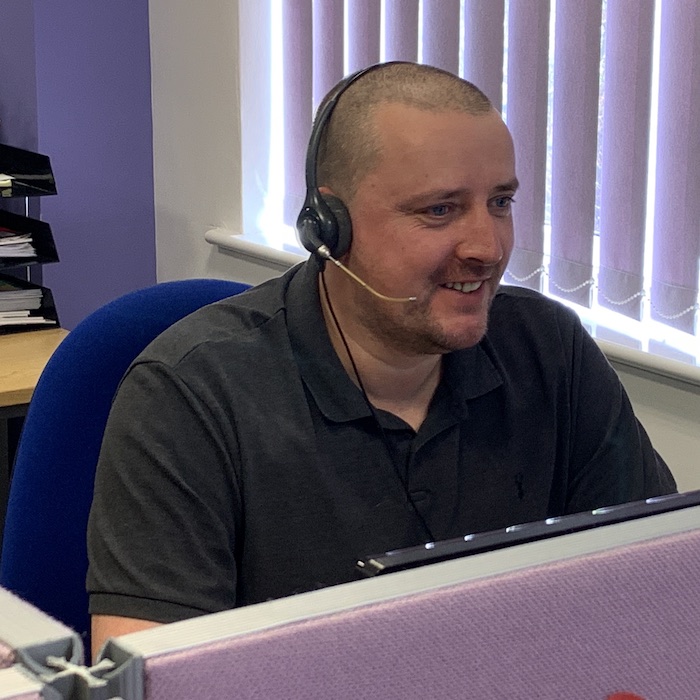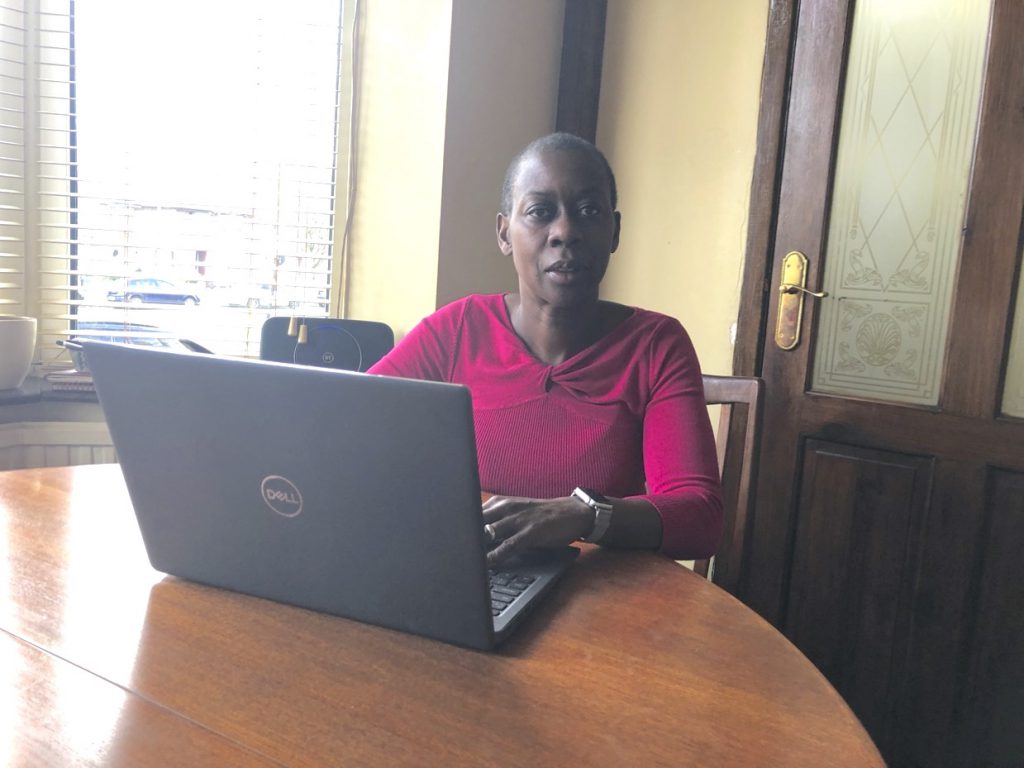Four ways MaPS helps customers with money and mental health problems

Money problems can cause mental health problems, and mental health problems can cause money problems. This Mental Health Awareness Week policy, insights and external engagement director Sarah Porretta shares four of the ways that the Money and Pensions Service (MaPS) helps customers caught in this spiral, and how your organisation can help us reach more people.
Money and mental health go hand in hand. One in five people with mental health problems are in problem debt. It’s a two-way relationship where problems with one can make the other worse.
We know that people caught in this situation may find it harder to engage with debt advice and may be under pressure to pay their debts when they are not in a position to do so. Whatever the cause, the interplay between money and mental health worries can make it more difficult to seek help, and can be challenging for those who are trying to guide or advise them.
In partnership with the debt advice sector, healthcare providers and others, MaPS supports customers with mental health problems in a number of ways, including:
- Providing an access point for mental health practitioners to refer patients for debt advice in a new £2.4 million pilot with charity Rethink Mental Illness.
- Making it easier for debt advisers to refer clients for Debt Relief Orders, which help customers to get on top of their debts.
- Referring our money guidance customers with mental health problems to the Mental Health and Money Advice Service.
- Working with NHS talking therapy services.
Read on to learn more about our work, including lived experiences of debt advisers and customers, and find out how you can support us to reach more people with money and mental health problems.
1. Access to debt respite for people in mental health crisis
What is Breathing Space?
Breathing Space is a new government debt respite scheme that provides protections for people in England and Wales who are in debt. This includes pausing enforcement action and contact from creditors, and freezing interest and charges on their debts.
Breathing Space for mental health practitioners and patients
MaPS is managing a single point of entry for qualified mental health practitioners to easily refer their patients for a Mental Health Crisis Breathing Space (MHCBS).
MHCBS is specifically for someone who is receiving mental health crisis treatment and who may not be able to access debt advice and apply themselves for Breathing Space. It enables an application to be made on their behalf to a debt adviser, with the approval of a mental health practitioner. The ‘Breathing Space’ lasts for the duration of their treatment plus 30 days, to prevent their debts worsening while they are in crisis.
Breathing Space referrals and training for advisers
This week we announced our exciting new £2.4 million pilot with charity Rethink Mental Illness in England to help people in mental health crisis avoid worsening debt problems.
Rethink Mental Illness will process Mental Health Crisis Breathing Space referrals in England, and Citizens Advice will process referrals in Wales, made through MaPS’ single point of entry. As part of our pilot, Rethink Mental Illness will support the client after they leave crisis care to provide debt advice where appropriate.
MaPS is also funding specialist Breathing Space training and support for debt advisers across the sector.
2. Easier referrals for debt relief orders

We’ve taken decisive action to ensure debt relief orders (DROs) remain available to people. Successful application for a DRO means debt action can be frozen for 12 months and debts written off after this if the customer’s circumstances remain the same. DROs can be particularly beneficial to people on low incomes and those who may be in vulnerable circumstances, including people with mental health problems.
DROs are a key priority for MaPS and the government has just announced that they will extend the criteria to access them. MaPS now funds all DRO administration in England and have increased our capacity this year in light of the wider qualification criteria. Our work on streamlining administration makes an often complex and lengthy process easier for both the adviser and the client, especially when they are also experiencing mental health problems.
An adviser, Stephen, and customer Ruby (not her real name) shared their experience with us.
Ruby’s story
The stress of her money worries prompted Ruby to approach the MaPS-funded Debt Advice Foundation for help. Her adviser Stephen suggested a DRO and referred her to the national DRO unit, also MaPS funded.
Ruby told us: “I felt as though I was drowning. The stress and isolation can be all-consuming when you’re going through financial difficulties… The adviser at the DRO Unit took the jargon out of a stressful legal process in a way that helped me understand what was required. Stephen was still available to contact and followed up on the progress. There is clearly a strong relationship between the two organisations… Often moving information and documentation from one organisation to another can result in delays or miscommunication but that was not the case.”
Adviser Stephen said “The DRO gave Ruby an opportunity to carry on dealing with her personal and work life to better her situation without the worry of the debts and further action.”
Learn more about MaPS work with DROs
3. Referral partnership with the Mental Health & Money Advice Service

Too often, people with mental health problems are signposted to multiple different services and aren’t able to get the expert help that they need. Where our customers need it, MaPS’ consumer money guidance contact centres refer them to a specialist service, the Mental Health & Money Advice Service (MHMAS).
Thanks to our referral partnership, when we are contacted by a customer with a mental health problems, we can make an appointment for them, and one of the expert advisers at MHMAS makes contact at the agreed time and can address any welfare, debt and mental health problems. The adviser spends an average of eight hours per client – an indication of the specialist work involved.
MHMAS adviser Cecelia and customer Steffie (not her real name) shared their story:
Steffie’s story
Steffie was able to clear her debts and get her life back on track after we made her an appointment with MHMAS. Steffie lives with anxiety and depression and was very distressed when she called during lockdown. She had lost a stone in weight and could not afford to eat. She had not been able to get the help she needed elsewhere. She worked with MHMAS adviser Cecilia.
The first thing Cecilia did was sort out a food bank parcel that had gone awry. She then worked through a Personal Independence Payment application and arranged a Discretionary Housing Payment that enabled Steffie to clear some of her rent arrears.
Steffie told us: “Cecilia dealt with me during my horrible journey through deep depression and terrible anxiety because of awful money problems. Without Cecilia, I don’t know where I’d be now. My head is in a much better place – with my initial first PIP payment, I paid off all my credit cards to £0.”
Cecilia, her adviser, said “Steffie was very tearful, and she has been a lot of the time when we’ve spoken. You have to go slow. My background helps: I used to deliver money advice to Community Mental Health Trust patients. It heartens me that Steffie doesn’t have to fight for her PIP and can live her life debt and worry-free and not worry about the basic things like feeding herself and keeping her home.”
If you think someone needs support with money and mental health problems check out the MHMAS website or the MaPS-supported MHMAS toolkit for healthcare professionals.
4. Building money guidance into NHS talking therapy services
MaPS is piloting an England-wide pilot to help people access money guidance support when they are receiving therapy. Our Money Guiders Programme is working with employment advisers (EAs) who operate within the NHS Improving Access to Psychological Therapies (IAPT) programme. IAPT is an NHS-funded service in England providing talking therapies and other treatments for people with depression and anxiety disorders.
The Department of Work and Pensions funds a network of employment advisers to work alongside NHS therapists where relevant to support people receiving IAPT treatment to retain employment or enter the workplace. MaPS is now delivering Money Guider training to over 100 EAs, which will provide them with foundation level learning in money guidance. This will enable them to better respond to patients’ money-related problems that are disclosed during patient-EA interactions.
There is a very present need to be able to support IAPT patients with their financial wellbeing through access to information and signposting. MaPS have been overwhelmed by the level of interest from IAPT staff in undertaking our Money Guider training. Over 160 employment advisers have already joined or registered interest in the programme in the first few weeks, and we’re hoping to reach over 350 across England by the end of the pilot.
Learn more about our Money Guiders Programme and how your organisation can take part
Keep up to date with our work to support people with money and mental health problems: register for our monthly newsletter and join the conversation on LinkedIn and Twitter.
